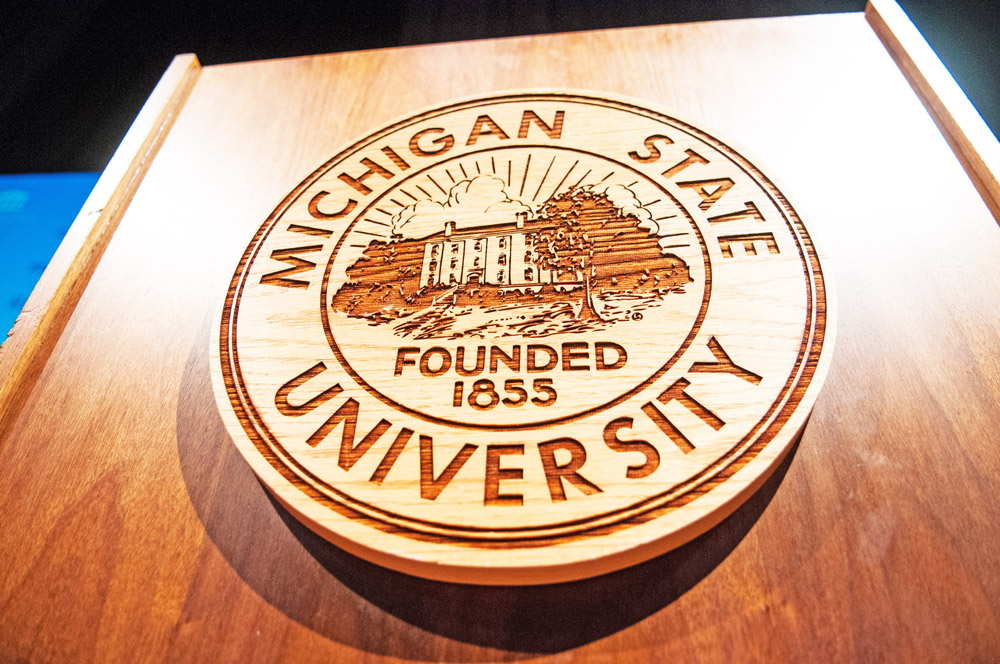The MSU IT Council met on September 15. Below are the high-level topic summaries from the meeting.
Data Center Update
Rob McCurdy, Interim Chief Information Officer, said the MSU Board of Trustees approved the construction budget to build a new data center for the university. Construction was scheduled to begin in September 2016 and to be completed by February 2018. The new data center will consolidate MSU’s two enterprise locations (Computer Center and Administration Building) into one 10,000-square-foot space and will support 2.5 megawatts of computing and roughly 312 racks.
The High Performance Computing Center will also move into the new facility in the initial phase. Data center space will be available to other departments in later phases.
The center is being built for expansion capabilities to 5 megawatts with the additional cooling capacity to support it. Growth projections indicate the soonest we would need to expand this space is 2022. The new MSU Data Center is part of the IT Transformation Initiative to strengthen current infrastructure.
IT Service Management
Dush Fernando, Assistant Director, IT Service Management, provided updates on work being done by Service Management. MSU IT Service Desk call volume remains similar year over year, but the call abandon rate and average speed to answer calls have been dramatically reduced.
Completed in the last year was the support desk consolidation, adoption of change management best practices, an updated Service Status application, a transition to knowledge management within the IT Service Desk/Service Portal tool, and implementation of the Avaya Aura Contact Center. Additionally, Infrastructure Planning and Facilities (IPF) and the Health Information Technology team were moved into the IT Service Desk/Service Portal tool for ticketing and requests. The Self Service Portal also launched for requesting services.
Future plans include a service catalog refresh, integration of Veterinary Medicine, implementation of asset management, integration of Agriculture and Natural Resources, and Customer Engagement and Configuration Management.
IT Service Catalog
Anne Phillips, Associate Director for Telecom Systems, presented the IT Council Service Catalog Work Group’s progress on recommendations for improving the customer experience to successfully access information about campuswide technology services. A prototype solution, developed by IPF staff, was demonstrated.
The IT Council thought consideration of audience was important and noted that many audiences find what they are looking for through search engines. To have an effective catalog, it will be important to manage keywords and search terms. A central database to contain catalog entries for both central and distributed units is desirable but not likely at this time.
Email updates
As a pilot, the Broad College of Business converted more than 425 mailboxes to Office 365/Spartan Mail and the College of Natural Science converted more than 250 mailboxes. Meetings are being scheduled with these early adopters. Select group testing group testing will happen in these colleges for Microsoft One Drive and Skype for Business. These colleges are also working with IT Services on a playbook for migrating to Office 365/Spartan Mail.
MSU IT is looking to implement Sender Policy Framework (SPF), which is an email validation system designed to detect email spoofing. It provides a mechanism to allow receiving mail exchangers to check that incoming mail from a domain comes from a host authorized by that domain’s administrators.
MSU IT has been logging emails over 60 days and the number of spoofed emails coming from MSU systems are very low. A white paper is being developed to inform the MSU community about this project. Initially, SPF records will be implemented without blocking email so we can evaluate the effect it will have without breaking anything.
About the IT Council
The MSU IT Council serves as a primary IT advisory body. Membership is made up of IT leaders appointed by the senior deans and directors from each of the degree‐granting colleges, core academic units, major academic support units, and other major business units.
The MSU community is encouraged to seek out their IT Council representative or visit the IT Council website for more information on topics of interest.



